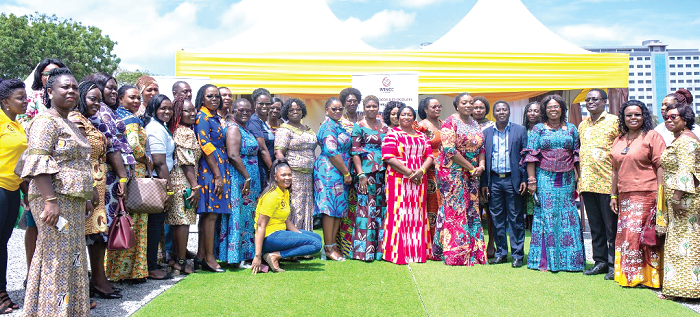
Who listens to Ghana’s females in the cocoa business?
In 2010, middle-aged Leticia Yankey, then a public health worker, grudgingly gave in to pleas by a friend to double into cocoa farming.
After periods of virtual persuasions, she took up an almost seven-acre land at Osikuma and Achease at Dunkwa on Offinso in the Central Region on which she rolled out her cocoa farming business.
Although paying for the land was challenging, proceeds from the food crops that she intercropped with the cocoa seedlings came in handy: Combined with savings from her husband, Leticia quickly settled the cost of the land and settled down to real business.
Little by little and with the expert guidance of extension officers from the Ghana Cocoa Board (COCOBOD), the young cocoa plants became giant trees and the investments started translating into incomes – money that soon became opportune anchors for household expenses.
On September 30 when I asked if returns from the business were good, she replied: “I would have stopped long ago if it wasn’t good.”
“Whatever I put in, I write it down. At the end of the season, whatever I earn, I write it down too and I strike the difference and I have not recorded any loss yet,” she said.
Fueled by the promising returns, she started reinvesting some of her profits into the farm and using some to acquire more lands.
Thus, farm size soon increased to 27 acres before peaking at 30 acres at the moment.
WINCC here
to help
Leticia is one of many other females taking cocoa farming and other activities within the crop’s value chain as fulltime jobs to help empower themselves, support their families and improve the general wellbeing of their societies.
The COCOBOD estimates that of the over 800,000 families engaged in cocoa activities, some 25 per cent are women. It adds that about 75 per cent of the tasks in the cocoa value chain are undertaken by women.
Like females in every facet of business, women in cocoa face peculiar challenges that require special attention to address.
Unfortunately, they are the most vulnerable, often marginalised and hardly given an ear on issues pertaining to cocoa production.
Concerned by the development, sustainable supply chain focused civil society organisations, Solidaridad, in May 2015 launched a special initiative dubbed: Women in Cocoa & Chocolate Network (WINCC).
The WINCC, which is an initiative of Solidaridad and COCOBOD, was jointly launched by the two institutions in September this year.
The goal of WINCC is to stimulate professional women to increase their impact, sphere of influence, become more visible and active in contributing to a more sustainable cocoa value chain. The objective is to connect, engage and inspire one another.
“Our vision is a sustainable and inclusive cocoa value chain in which women can reach their full potential.”
“To reach this, WINCC wants to empower women and remove barriers to participation throughout the cocoa and chocolate value chain,” the International Programme Coordinator at Cocoa for Solidaridad, Ms Suzan-Hermina Yemidi, said in an interview.
“Our target group is women throughout the cocoa and chocolate value chain, across different levels of influence and functional areas in producing and consuming countries. They include cocoa farmers, cooperation members, women working in cocoa & chocolate companies, governments, CSO’s, donors and other supply chain actors,” she said.
Successes
Since its formation in 2015, Ms Yemidi said WINCC had connected hundreds of women in the global cocoa space.The WINCC has held six international conferences and seminars, building the capacity of its members, discussing critical challenges that affect women and engaging regulators.
Ms Yemidi said though the WINCC idea was from Solidaridad, the organisations sought to use the network to partner the COCOBOD to improve the livelihood of women.
She said her outfit pledged to ensure that “everything the network initiates and organises is done in a positive and fun environment.
“Solidaridad has provided funding to build a solid base for the network in the first years,” she said and thus called for partnerships with companies and institutions to entrench the successes of the network.
Asked who can join, she said, “the key thing is that they can be identified as change agents or they have the willingness to become a change agent.”
Way forward
Although still in its formative years, the WINCC is showing signs of helping empower women to deliver maximum value in cocoa production and its value chain. This is unique, inspiring and worthy of encouragement.
For an industry that supplies the third biggest foreign exchange, employs over 800,000 and remains a strong source of domestic revenue, every actor in it deserves the support they require.
In the case of women, who, like Leticia said, “do everything yet are barely recognised,” giving them a listening ear through a network such as WINCC is the primary step to understanding their challenges.
As a result, I am hopeful WINCC will be embedded in COCOBOD and that sector actors will support it to network a success and leverage the platform to address the fundamental challenges facing female farmers.
This way, Ghana will be on the way to hitting another one million metric tons in cocoa production sooner than currently envisaged.